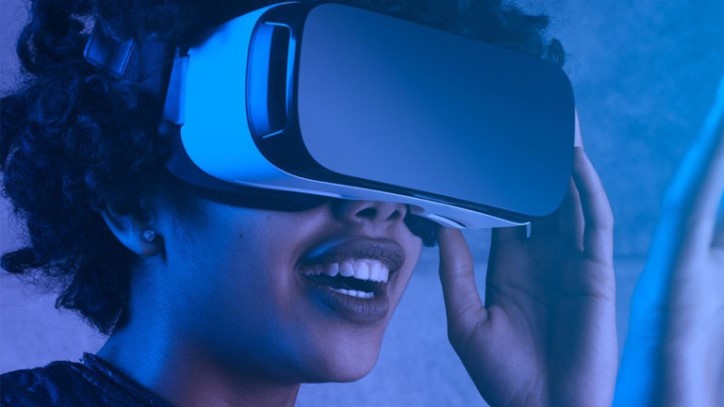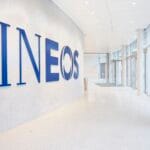Why Accenture is giving VR headsets to thousands of new hires

(Yahoo Finance) – Accenture CEO Julie Sweet joins ‘Influencers with Andy Serwer’ to share how her company is adjusting to the ‘new normal’ in the workplace.
Video Transcript
JULIE SWEET: We were, prepandemic one of the most global remote working companies in the world because we have teams from all over the world. We haven’t had a headquarters in three decades. But we’ve learned a lot about how you raise your game in both onboarding 100% virtually, but also creating new connections.
And since we do believe it is a permanent experience that we will– all companies will have more people who work remotely, right, we’ve really rethought what’s that experience. And so phygital is talking about how you think about the physical and the digital together. So super simple example, when you started a new job, but prepandemic you showed up someplace.
Right, and you had the excitement. You went home. You said this is what the coffee is like, and this is who I met. Well, we have all these people who are shutting their laptops, and then, the next day opening their laptop from Accenture and there was no physical connection. And so we said, well, how do we solve that?
And our employees, new employees now, get a welcome box. And what does it have in it? Sure, it has its computer, but it has these little signs that are like the leadership– that are like the posters they would have seen in the office, our sustainability promise, our leadership essentials. It has Accenture swag, so when they set up their office, they have a physical connection in addition to a digital connection with their new teammates.
At the same time, we just ordered thousands of Oculus headsets. Why? Because our onboarding is now going to include virtual reality. And virtual reality, super cool these days, we’re using Microsoft Mesh. It’s about having a shared experience with colleagues who you can’t be together with. And it’s different than just talking like this.
And so really thinking about how you build connections, and you bring the physical and the digital world together, differently, we think is the long term success for how you both engage, attract, and retain employees.
ANDY SERWER: Phygital, huh?
JULIE SWEET: Phygital.
ANDY SERWER: OK, but I mean, still you lose– and we all feel this way, the serendipity of interactions, chance interactions, the mentoring, the in person mentoring when you hear someone, a younger person making a phone call, a sales call, and it’s not going right. How do you try to address those problems, Julie?
JULIE SWEET: Well, here’s what I would say. We at Accenture have made a decision that once you can go back to the office in all the different countries, we won’t have any job that is 100% remote. But I would challenge you, Andy, to think differently about mentorship.
I remember when I joined Accenture in 2010, I found it really interesting that career counsel, so the people that mentor people, were not physically in the same place. And for us, it was a pretty simple thing. Our people work on lots of different clients, and they fly all over the place. And so you couldn’t have that physical.
Now, we have mentorship on the job. And sometimes, that means, even prepandemic working together with someone side by side, but they were part of global teams. And so mentorship, right, can happen, and has happened at scale at Accenture for decades, not in person. And so it’s not that– and believe me, I think in person is super important, which is why we said, not going to have 100% remote for anyone.
But I do also think we have to think about how you use the tools. How are you setting it up? Are you even giving people time to be mentors? And it’s a lot more than physical presence.
ANDY SERWER: Interesting. Some more questions about employment if you don’t mind, it really is kind of topic A, right now. And this is one from our audience. What more can companies do to entice workers to join their workforces beyond just higher pay and work from home flexibility?
JULIE SWEET: I think that’s a great question. And we have some research, in addition to the leaders and relief programs research, which I’m happy to make available to all of you. We have research called net better off. And we really took a step back, as an employer, and said, what’s the value proposition?
And so the easy things are things like training, of course pay, but it’s also relationships. So how do you build that inclusive workforce? And well-being, and so for example, we provide a lot of different wellness tools.
We’ve had 180,000 people go through our program that we do with Thrive, which is around the science of anxiety. It helps our employees decrease anxiety by 11%. We provide on our teams a one minute like thrive reset for mindset. And so having– being an employer that provides wellness, is also makes you attractive.
Also things like– we have a concierge for our LGBTQI employees, that helps them manage. Like where can they get the right health care that are unique to LGBTQI? It’s a way that we can provide our scale and our service. We provide an electronic second opinion for our employees, and their loved ones, when they face things.
And so thinking about the different components of people. And it starts with our leadership essential. We say to our leaders, to be a leader at Accenture, you must care about your people personally and professionally. And that is more important than any program, than any flexibility or perk if you live that leadership essential.
ANDY SERWER: Right. I want to shift gears a little bit and ask you about your sustainability goals because they’re ambitious. Offices to run on 100% renewable energy by 2023, which is right around the corner, net zero emissions by 2025. How are you going to get there? And you are more ambitious than many of your clients, I’m sure. Is corporate America working too slowly? So two questions, there.
JULIE SWEET: Great. Yes, at the core of our strategy is to help our clients meet their sustainability goals, and for us to have ambitious goals that we meet. And we are really proud because we’re a leader in our industry. We’re already at 50% for renewables, so we will absolutely make that. And as you said, it’s not easy, particularly because we operate in over 50 countries around the world with offices.
And so how are we going to make it? We made goals, and then– and then, you know, we treat it like a business priority. So even prepandemic we said we were going to reduce travel structurally, which is hard for us because we have a lot of people who travel. But we had said structurally, we’re going to do that.
We’ve just announced that we’re investing in projects that do– not just buying credits, but actually technology driven products for providing sort of nature. And it’s everything from planting trees to other ways of actually having carbon reduction through technology and nature. And so we’re investing in that. So that’s how we’re going to make it.
I would tell you that corporate America, and globally, so across the globe, they are committed. Three out of five CEOs, in a recent World Economic Forum study, said that they believe they have to do more. And we’ll be doing more around sustainability, that it’s a requirement. So I’m very optimistic that post-pandemic we’re going to build back better, and that every business will be a sustainable business, in addition to a digital business.












